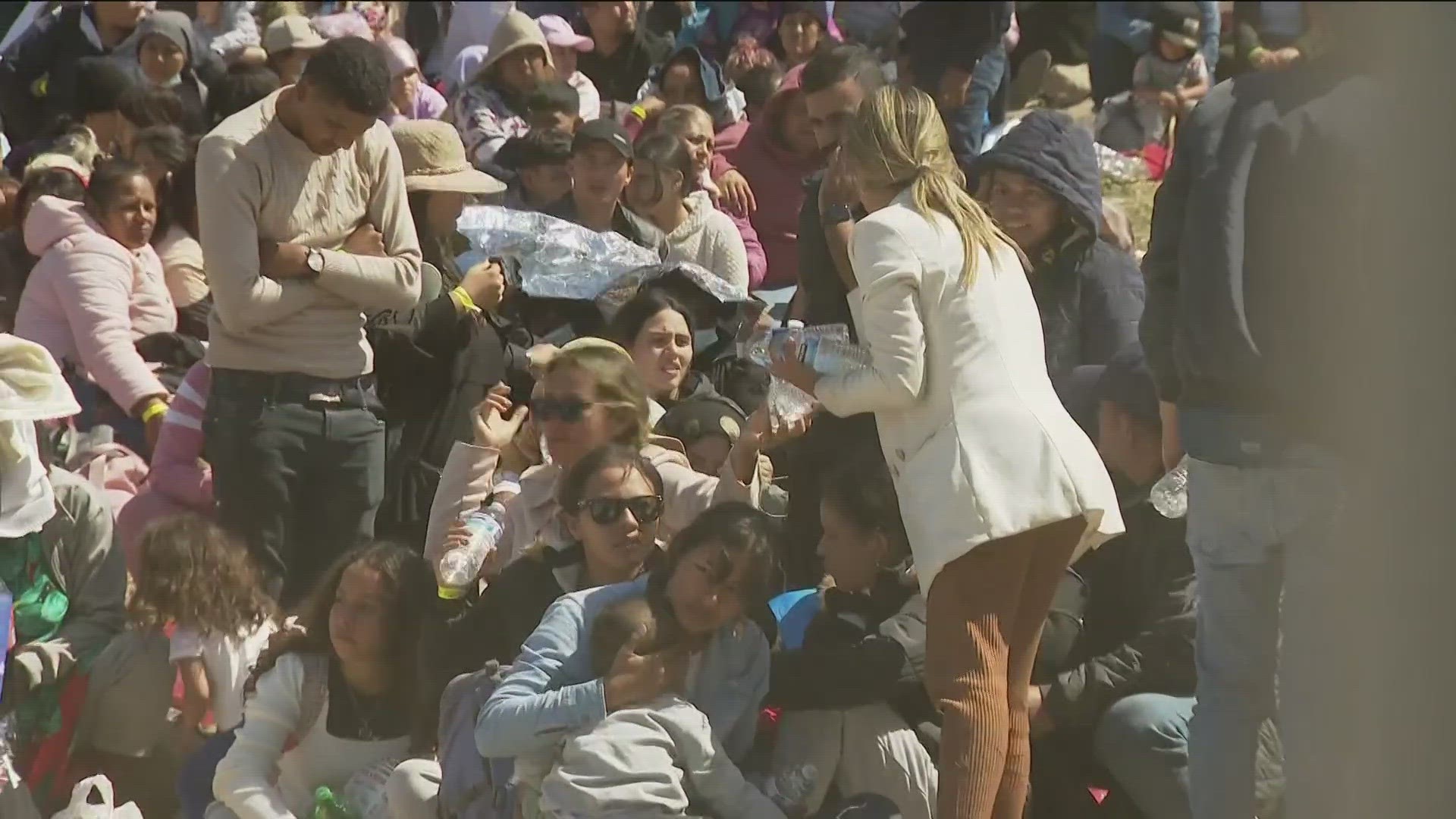SAN DIEGO — The thousands and thousands of migrants now coming to the border are hoping they will be granted asylum.
For many of them, though, that will not be the case.
In the years leading up to Title 42, more than half of all migrants seeking asylum in the United States were ultimately denied: a fate many of these migrants here desperate to make it to the U.S. could also face.
One of those migrants, Kevin Geraldo, journeyed here to the southern border with his pregnant wife.
A former police officer in Medellin, he said because of his profession, his life has been threatened by criminals there, forcing him to leave his homeland with his family.
He said it would be too dangerous to return home if he and his wife were denied their asylum case.
During the last year of the Obama administration, in 2016, asylum claims were rejected nearly 55 percent of the time, according to the nonpartisan data research center TRAC. That climbed to nearly 74 percent in 2020 after Title 42 began.
"Many asylum seekers will have their cases denied, and they'll be returned to their home countries," said immigrant rights activist Pedro Rios with the American Friends Service Committee; Rios said that for those denied asylum, their fates are uncertain.
"It could be that some of these individuals might be sent to Mexico, and some might be returned to their home countries, which is extremely unfortunate because that means they could face danger, harm, even death in some circumstances," Rios told CBS 8.
Colombian native Daniela Inau prays that that is not her fate.
As a lesbian, she said she had endured intense bullying in her hometown and hopes for a new life in the United States, praying that she will be granted asylum.
If not, she fears she would likely have to return to the homophobia she's endured back home.
This week, Mexico announced that it would agree to accept 30,000 migrants per month from Cuba, Haiti, Nicaragua, and Venezuela who are denied entry here in the United States.
The White House also said it plans to expand its family reunification program, which is now open to migrants from Cuba and Haiti. U.S. officials said they plan to allow roughly 100,000 migrants from El Salvador, Guatemala, and Honduras to live and work in the United States, provided they already have family living here.
WATCH RELATED: Migrant women and children given precedence processing at border

